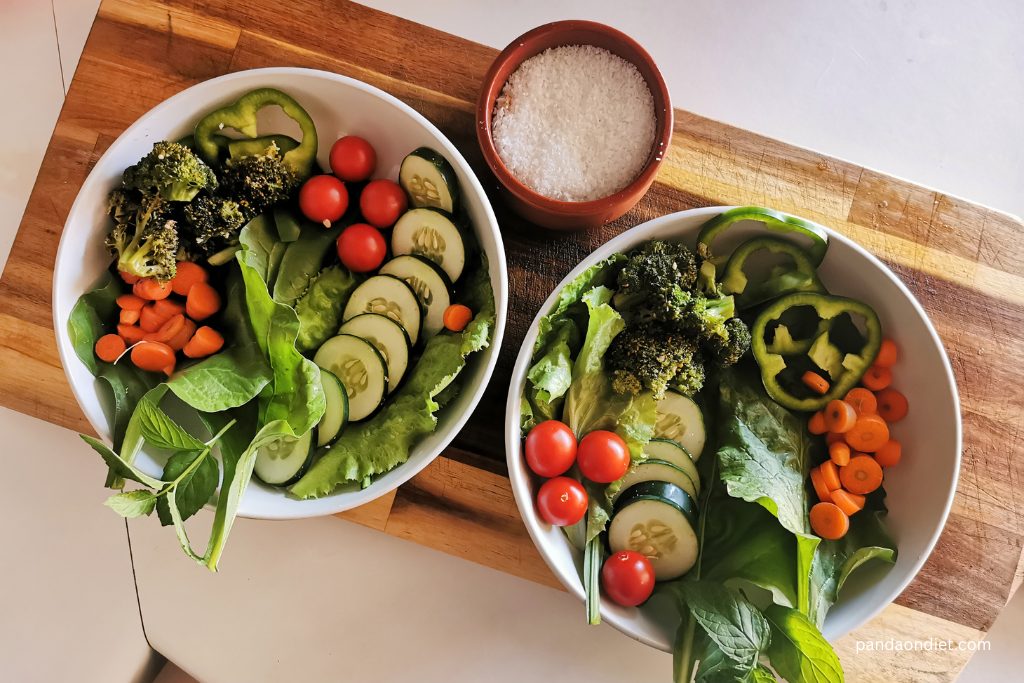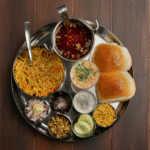A Guide to Healthy and Ethical Eating
A vegan diet has gained popularity for its health benefits and ethical principles. It excludes all animal-derived foods and focuses on plant-based eating. Many choose this diet to improve their health, support the environment, and reduce animal cruelty.
This article will provide a detailed guide to the vegan diet. We’ll cover its types, benefits, challenges, and practical tips. Whether exploring this lifestyle or following it, this guide will help you stay informed and inspired.
What is a Vegan Diet?
The vegan diet eliminates meat, dairy, eggs, and all products derived from animals. It is entirely plant-based and includes foods like fruits, vegetables, grains, legumes, nuts, and seeds.
Switching to a vegan diet can seem challenging at first, but with the proper knowledge and meal options, it becomes easier to adopt. Below are the main components of a vegan diet.
Key Foods in a Vegan Diet
- Fruits and Vegetables: Examples include apples, bananas, carrots, and leafy greens.
- Grains: Whole grains like oats, rice, and quinoa are staples.
- Legumes: Lentils, chickpeas, and black beans provide essential proteins.
- Nuts and Seeds: Almonds, walnuts, chia seeds, and flaxseeds offer healthy fats and nutrients.
Types of Vegan Diets
There is no single way to follow a vegan diet. Depending on your preferences and goals, you can choose from several variations. Understanding the types of vegan diets will help you decide which one works best for you.
- Whole-Food Vegan Diet
This approach emphasises unprocessed, natural foods. It includes fresh fruits, vegetables, legumes, whole grains, nuts, and seeds. Whole-food vegan diets are rich in nutrients and help maintain overall health.
- Raw Vegan Diet
A raw vegan diet consists of foods that are uncooked or heated below 118°F. Proponents believe that raw foods preserve more nutrients and enzymes. Popular choices include fresh fruits, salads, and smoothies.
- High-Carb, Low-Fat Vegan Diet (HCLF)
This diet focuses on high carbohydrate intake from foods like fruits, rice, and potatoes. It minimises fats from oils, nuts, and seeds. People following HCLF diets aim for sustained energy levels and improved digestion.
- Junk Food Vegan Diet
This version includes processed vegan foods like mock meats, vegan ice cream, and chips. While convenient, it lacks the nutritional benefits of whole-food diets and should be consumed occasionally.
Why Choose a Vegan Diet?
Adopting a vegan diet offers several advantages. Whether for personal health, environmental sustainability, or animal welfare, this lifestyle provides a range of benefits.
- Health Benefits
Vegan diets are linked to lower risks of chronic diseases, improved digestion, and better weight management. People often report feeling more energetic and healthier.
- Environmental Impact
Plant-based diets reduce greenhouse gas emissions and save water and land resources. By cutting out animal products, you contribute to a more sustainable planet.
- Ethical Considerations
A vegan diet supports animal welfare. It avoids the exploitation of animals for food, clothing, or other products. Many people find this lifestyle aligns with their ethical values.
Health Benefits of a Vegan Diet
The health advantages of a vegan diet are well-documented. Plant-based foods provide essential nutrients and reduce the risk of many health issues. Below are the key benefits of following this diet.
- Improves Heart Health
Vegan diets are rich in fibre and low in saturated fats, which are essential for heart health. Whole grains, nuts, and vegetables can lower cholesterol levels and blood pressure.
Examples of heart-friendly foods
- Oats help reduce cholesterol.
- Avocados provide healthy fats.
- Walnuts are rich in omega-3 fatty acids.
- Aids in Weight Management
A vegan diet is naturally lower in calories than diets containing animal products. Its high fibre content keeps you full for longer, reducing overeating.
Fibre-rich foods include
- Sweet potatoes are satisfying and nutrient-dense.
- Lentils provide protein and fibre.
- Apples are an excellent snack for fullness.
- Reduces Risk of Chronic Diseases
Plant-based diets contain antioxidants that reduce inflammation. They also help prevent chronic diseases like diabetes, cancer, and hypertension.
Antioxidant-packed foods
- Berries protect cells from damage.
- Spinach supports the immune system.
- Green tea helps fight oxidative stress.
- Enhances Digestive Health
Fibre is a crucial component of vegan diets. It supports gut bacteria, improves digestion, and promotes regular bowel movements.
Gut-friendly options
- Bananas help soothe the stomach.
- Sauerkraut is rich in probiotics.
- Whole-grain bread adds bulk to the diet.
- Promotes Skin Health
Vitamins and minerals from plant-based foods improve skin texture and elasticity. Antioxidants help combat acne and aging.
Skin-nourishing foods
- Oranges are high in vitamin C.
- Almonds provide vitamin E.
- Carrots contain beta-carotene.
Challenges of a Vegan Diet
While a vegan diet has many benefits, it can also present challenges. Being aware of potential difficulties helps you find practical solutions.
- Protein Intake
Protein is essential for muscle and cell repair. While animal products are rich in protein, vegans can meet their needs through plant sources like tofu, lentils, and tempeh.
- Vitamin B12 Deficiency
B12 is crucial for energy and nerve health. Vegans may struggle to get enough because it is found mainly in animal products. Fortified foods and supplements are necessary.
Sources for B12:
- Nutritional yeast
- Fortified cereals
- Plant-based milk
- Calcium Absorption
Vegans must choose plant-based calcium sources like kale and almonds. Pairing them with vitamin C-rich foods helps improve absorption.
Examples:
- Kale with lemon juice boosts calcium intake.
- Almond butter spread adds variety.
- Social Situations
Dining out or attending gatherings can be challenging for vegans. Planning, checking menus, or bringing snacks can help avoid inconvenience.
Tips for Starting a Vegan Diet
Transitioning to a vegan diet can be rewarding with the right approach. Follow these tips to make the process smoother and more enjoyable.
- Transition Slowly
Instead of going vegan overnight, start by incorporating one plant-based meal a day. Gradually increase the number of vegan meals.
- Explore New Recipes
Try dishes like stir-fried vegetables, chickpea curry, or vegan pasta. Experimenting keeps meals exciting.
- Plan Your Meals
A well-planned diet ensures you get essential nutrients. Batch cooking and meal prepping save time and reduce stress.
- Read Food Labels
Animal-derived ingredients often hide in packaged foods. Check labels for terms like whey, casein, and gelatin.
A Sample Vegan Meal Plan
A well-balanced vegan diet can be delicious and nutritious. Here is an example meal plan to inspire your daily meals:
- Breakfast: Smoothie with spinach, banana, almond milk, and chia seeds.
- Lunch: Quinoa salad with cherry tomatoes, cucumber, and tahini dressing.
- Snack: Hummus with carrot and cucumber sticks.
- Dinner: Chickpea curry with brown rice and steamed broccoli.
- Dessert: Dark chocolate and strawberries.
FAQs
1. Is a vegan diet suitable for all ages?
Yes, a vegan diet can meet nutritional needs at any stage of life when properly planned.
2. Can I build muscle on a vegan diet?
Yes, plant-based proteins like tofu, lentils, and protein powders support muscle growth.
3. What are suitable substitutes for dairy?
Plant-based milks (almond, soy), coconut yogurt, and cashew cheese are excellent options.
4. How do I avoid nutrient deficiencies?
Eat a variety of foods and consider supplements for B12, omega-3s, and vitamin D.
Final Thoughts
A vegan diet is more than just a way of eating—it’s a lifestyle choice that supports health, the planet, and animals. With careful planning and a variety of plant-based foods, you can enjoy delicious meals that nourish your body.
Start small, experiment with new recipes, and embrace the benefits of this compassionate way of living!


